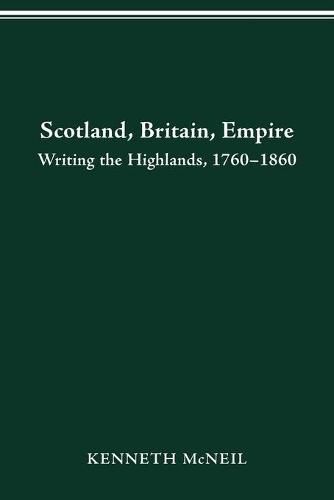Readings Newsletter
Become a Readings Member to make your shopping experience even easier.
Sign in or sign up for free!
You’re not far away from qualifying for FREE standard shipping within Australia
You’ve qualified for FREE standard shipping within Australia
The cart is loading…






This title is printed to order. This book may have been self-published. If so, we cannot guarantee the quality of the content. In the main most books will have gone through the editing process however some may not. We therefore suggest that you be aware of this before ordering this book. If in doubt check either the author or publisher’s details as we are unable to accept any returns unless they are faulty. Please contact us if you have any questions.
Scotland, Britain, Empire takes on a cliche that permeates writing from and about the literature of the Scottish Highlands. Popular and influential in its time, this literature fell into disrepute for circulating a distorted and deforming myth that aided in Scotland’s marginalization by consigning Scottish culture into the past while drawing a mist over harsher realities. Kenneth McNeil invokes recent work in postcolonial studies to show how British writers of the Romantic period were actually shaping a more complex national and imperial consciousness. He discusses canonical works–the works of James Macpherson and Sir Walter Scott–and noncanonical and nonliterary works–particularly in the fields of historiography, anthropology, and sociology. This book calls for a rethinking of the romanticization of the Highlands and shows that Scottish writing on the Highlands reflects the unique circumstances of a culture simultaneously feeling the weight of imperial anglobalization while playing a vital role in its inception. While writers from both sides of the Highland line looked to the traditions, language, and landscape of the Highlands to define their national character, the Highlands were deemed the space of the primitive–like other spaces around the globe brought under imperial sway. But this concern with the value and fate of indigenousness was in fact a turn to the modern.
$9.00 standard shipping within Australia
FREE standard shipping within Australia for orders over $100.00
Express & International shipping calculated at checkout
This title is printed to order. This book may have been self-published. If so, we cannot guarantee the quality of the content. In the main most books will have gone through the editing process however some may not. We therefore suggest that you be aware of this before ordering this book. If in doubt check either the author or publisher’s details as we are unable to accept any returns unless they are faulty. Please contact us if you have any questions.
Scotland, Britain, Empire takes on a cliche that permeates writing from and about the literature of the Scottish Highlands. Popular and influential in its time, this literature fell into disrepute for circulating a distorted and deforming myth that aided in Scotland’s marginalization by consigning Scottish culture into the past while drawing a mist over harsher realities. Kenneth McNeil invokes recent work in postcolonial studies to show how British writers of the Romantic period were actually shaping a more complex national and imperial consciousness. He discusses canonical works–the works of James Macpherson and Sir Walter Scott–and noncanonical and nonliterary works–particularly in the fields of historiography, anthropology, and sociology. This book calls for a rethinking of the romanticization of the Highlands and shows that Scottish writing on the Highlands reflects the unique circumstances of a culture simultaneously feeling the weight of imperial anglobalization while playing a vital role in its inception. While writers from both sides of the Highland line looked to the traditions, language, and landscape of the Highlands to define their national character, the Highlands were deemed the space of the primitive–like other spaces around the globe brought under imperial sway. But this concern with the value and fate of indigenousness was in fact a turn to the modern.